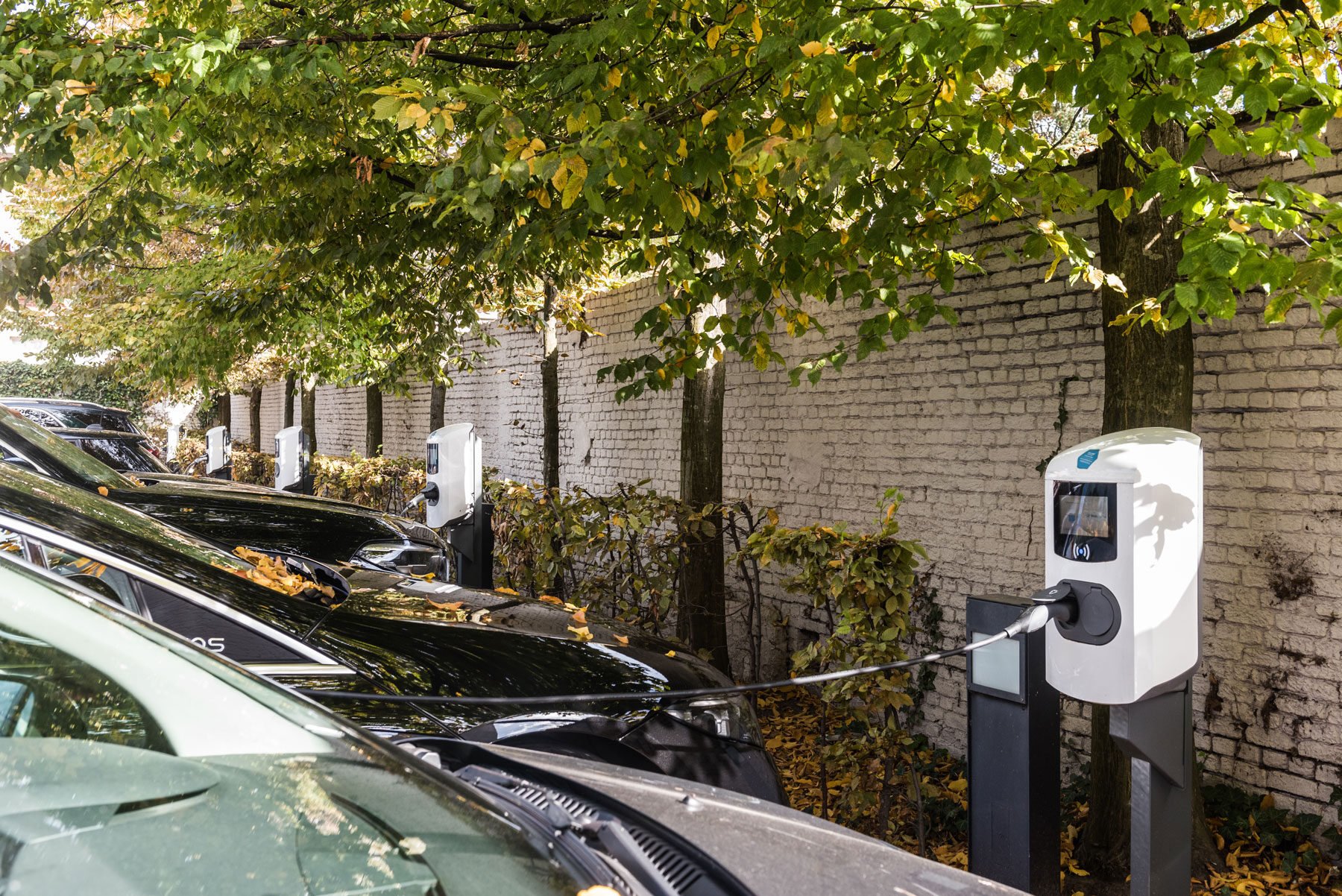Umicore
Umicore to use electric vehicles in Belgium: phased and budget-neutral
Materials Group, Umicore, has sustainability in its DNA. The global player with Belgian origins contributes to a sustainable world in various ways, from recycling valuable metals to producing materials for rechargeable car batteries. Umicore also follows the same course internally. Our phased mobility plan sets out that all company vehicles in Belgium will be electric by 2026. At no extra cost.
Sustainable mobility is not a new concept at Umicore. In 2017, we launched a bicycle policy and now have more than 1,000 leased bicycles on the road. Although employees have been able to choose electric vehicles (EVs) for some time, with our new mobility plan, we are stepping up the greening of our fleet.
Additional models, more incentive
“In 2019, we decided to fully switch to electric vehicles, even before the Belgian government took the same course,” says Michaël De Meyer, Compensation & Benefits Project Manager at Umicore. “But it has to be done step by step, because you cannot just cancel all contracts. Besides, in the initial phase, the range of EVs was still fairly limited. This is now changing, which is reflected in the response, with about 1 in 3 now choosing a 100% electric company vehicle, and we expect this curve to climb quickly. In April 2021, the intermediate score was 221 plug-in hybrids and 51 EVs out of 522 vehicles.”
Towards an emission-free vehicle fleet
2019
2020
2022
2024
2026
No compromise on comfort
“The transition will mean great changes for our employees,” says Michaël De Meyer. “They can choose from a pre-selected range of vehicles. What is most important, however, is that no one should have to sacrifice comfort. Thanks to our contracts with a number of well-known vehicle manufacturers, excellent lease partners, and the tax benefits, we can offer more higher-priced EVs for the same TCO, with all possible charging options. Everyone will be able to charge their vehicles on our sites, plus they will receive a charging card for the road and, where possible, a home charging point. Having maximum comfort in terms of charging is an essential factor in getting everyone on board, and it’s in your hands. That is, if you choose a charging partner that will take care of everything for you.”

Wanted: independent turnkey partner
“We did have some EVs in our lease package in the past. However, whenever we had technical problems or queries about issues such as energy refunds, there were always multiple intermediaries, resulting in a lot of wasted time. We therefore decided to scour the market for a turnkey partner for our new mobility plan. After talks with the key players, we decided to go with MobilityPlus.”
“MobilityPlus is a young Belgian company that focuses on energy management, offers a single point of contact, and facilitates the entire process, from performing technical preliminary studies and installing smart charge points to managing them. Most importantly, because of their brand-independent energy solutions, you can choose from all European A-brands, without being tied in. This means that you will be free to change the way in which you manage energy offsets and the breakdown service at a later date.”

Charging plazas offer more convenience and reduced costs
“We now have over 250 charging points on our 4 company sites. Another 150 will be added in the next few years, which will all be connected to green energy via our solar panels or wind turbines. Deliberate choice. Out of all the options – at home, on the road, or at work – our charging plazas are by far the most economic option for charging EVs. In the long run, this will lower the TCO of our fleet even further. Refuelling with fossil fuels is simply way more expensive. It is true that using public charging cards can be less advantageous, but our figures show that this rarely happens. After all, nobody likes to stand at the side of the road, so anyone who can, will charge their vehicle at home or at work.”
No more excuses
“It’s true that the electric vehicle market is still relatively new and that it’s not all plain sailing. There is room for improvement in public charging infrastructure in cities, the fast-charging options along motorways are under par, and there could be a bigger range of EV models. However, these challenges are primarily highlighted as a reason for not starting the transition just yet. If you take the time to go through the whole exercise though, you will find that electric driving is perfectly possible and does not have to cost any more at all. The prospects for the future are clear. There’s no doubt: you either make the transition now or you will shortly have to say goodbye to all your company vehicles.”
